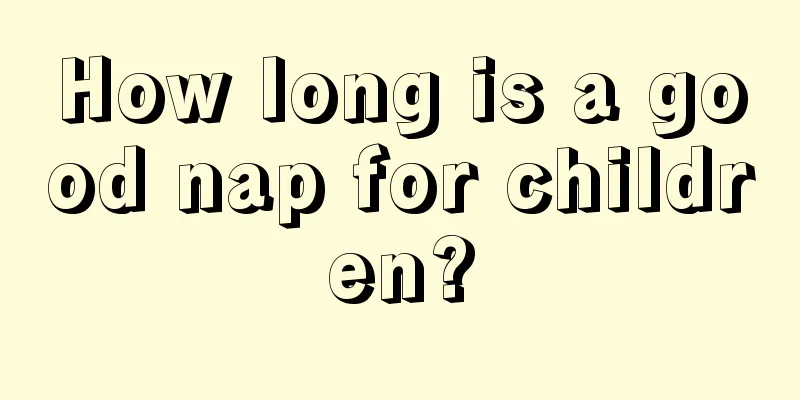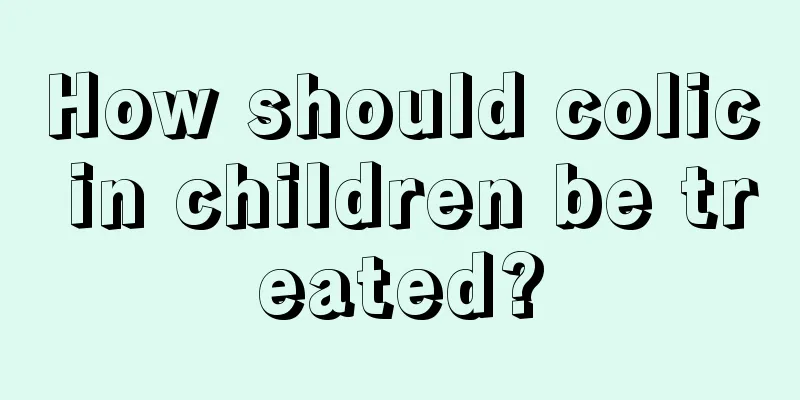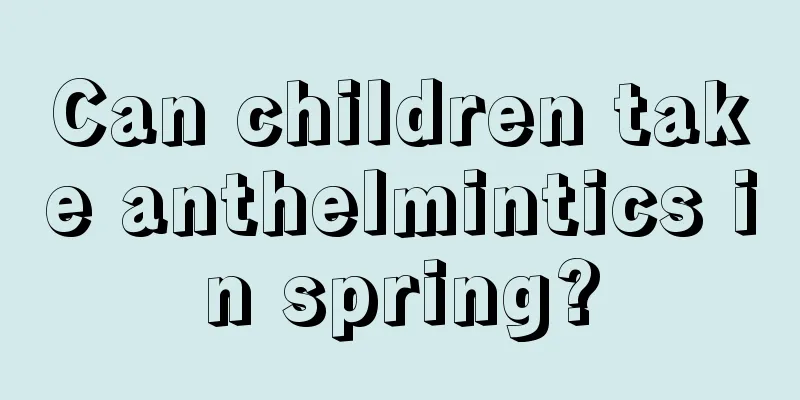What to do if your child vomits after eating

|
Children's digestive systems are actually not fully developed. Because of this, children often suffer from various gastrointestinal problems due to improper diet. For example, vomiting after eating is a common symptom. In addition to improper feeding and abnormal digestive function that can cause children to vomit after eating, gastrointestinal infectious diseases, nervous system diseases, mental factors or poisoning can also cause children to vomit after eating. 1. Improper feeding or eating Neonatal feeding: excessive feeding, improper milk formula, swallowing of large amounts of air while feeding; infants and young children eating large amounts at one time or food that is difficult to digest. 2. Abnormal digestive function Systemic infectious diseases, such as upper respiratory tract infection, bronchitis, pneumonia, sepsis and other diseases, are often accompanied by high fever, nausea, loss of appetite, and vomiting. 3. Digestive tract infectious diseases Diseases such as gastritis, enteritis, dysentery, appendicitis, etc. can cause reflex vomiting due to local irritation, which is often accompanied by other digestive system symptoms such as nausea, abdominal pain and diarrhea. 4. Nervous system diseases Central nervous system diseases such as encephalitis, meningitis, intracranial hemorrhage or tumors, and craniocerebral trauma can also cause vomiting, which is characterized by no nausea before vomiting and projectile vomiting, but is often accompanied by other symptoms of the nervous system, such as headache, mental depression, drowsiness, and even convulsions and coma. 5. Mental factors Some children may vomit due to excessive mental stress or anxiety caused by certain reasons. Recurrent vomiting is sometimes related to mental factors. 6. Poisoning Including various poisonings, such as food poisoning, poisonous animals, plant poisoning, drug and pesticide poisoning, etc., almost all of which have vomiting symptoms, but different poisonings have their own clinical characteristics for identification. 7. Others Vestibular dysfunction of the inner ear or Meniere's disease (hydromatous accumulation in the inner ear membrane and labyrinth) causes severe vomiting, but is often accompanied by vertigo and spinning vision; congenital gastrointestinal malformations in children, such as gastric torsion, hypertrophic pyloric obstruction, etc. In addition, vomiting is also severe in children with intestinal ascariasis who have intestinal obstruction or biliary ascariasis. |
<<: What should I do if my child has a fever after vaccination?
>>: How many years should children with Kawasaki disease be reexamined?
Recommend
Reasons why babies move their hands and feet
Sleep is important for both adults and children. ...
How to relieve the pain of tooth decay in children
For children, tooth decay, also known as cavities...
Can a 10-year-old drink lemonade?
Lemon is rich in nutrients, especially vitamin C....
What is the reason for children's poor memory? Mom, do you know?
Children with poor memory can give parents a head...
How to quickly eliminate baby's bloating and diarrhea
The baby's stomach and intestines are usually...
What to do if children have wisdom tooth caries
As children's bodies continue to grow, many b...
What is the best treatment for sinusitis in children?
Children may also be harmed by sinusitis problems...
Child's nail peeling
In life, many parents have found that their baby&...
What to do if your baby has bloating
We also know that in life, babies are often prone...
Six-month baby development indicators
We all know that many babies are in unhealthy con...
Children's total bilirubin is high
People may not know much about total bilirubin, b...
How to improve children's physique?
Because children are still young and their immune...
Can children eat durian?
Many adults like to eat durian, but children also...
What are the benefits of drinking Zhuhengli for children?
Many people use pork shank to make soup, which ha...
What to do if big red bumps appear on baby's body
The baby's physical health is one of the most...









